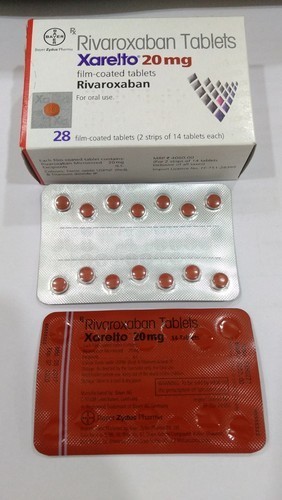Do international pharmacies make medication errors like in the U.S.? Blister Packs vs. Loose Pills

Millions of medication errors in the U.S. have caused illness and death to those seeking only to improve their health. When it comes to our pharmacists and the care they take with our prescription meds, we’d like to think patient safety is top priority. And it is, for the pharmacists. But maybe not so much for the conglomerates they work under, such as CVS or Walgreens. Pharmacists across the country that work at these huge chains have come out of the woodwork to blow the whistle on their employers’ ever-increasing demands, ones that lead to grave medication errors.
As reported in the New York Times, one American patient’s doctor prescribed pills for her asthma, and yet the pharmacist gave her someone else’s blood pressure meds. One guy was given ear drops instead of eye drops-- as a result, he ended up in the emergency room! One woman ended up in the ER and died because she was dispensed a chemotherapy drug instead of the antidepressant her doctor had prescribed. Another man discovered, after Googling, that he had in fact been taking estrogen, and not his antidepressant. Finally, a pediatrician realized that for two weeks, his 4-month-old patient had been dispensed a steroid instead of the baby’s prescribed reflux medication.
These stories shocked me, yet pharmacists are not in the least surprised due to the stressful working conditions they’ve endured.
Dr. Shivam Patel, licensed U.S. pharmacist and director of the PharmacyChecker Verification Program, recounts his own stressful time working at a chain pharmacy:
“While working for a chain pharmacy, I was often alone. Operating an entire pharmacy alone while trying to safely verify prescriptions becomes very dangerous. Dispensing errors can be made so easily: pharmacists can be distracted by busy periods of phone calls, drive through pick-up, patient consultations, and prescription drop-offs. This type of multitasking isn’t exactly conducive to patient safety.”
According to that New York Times article, there are many professional pharmacists working at companies, such as CVS, Rite Aid and Walgreens, that echo Dr. Patel’s experience: “[these are] understaffed and chaotic workplaces where they said it had become difficult to perform their jobs safely, putting the public at risk of medication errors.”
Like many corporate working conditions, these health professionals are expected to meet demanding sales performance metrics, such as getting patients to fill 90-day in lieu of 30-day prescriptions -- sometimes against the advice of their doctor. Why? Well, in many cases, the more pills CVS sells, the greater the profit. The fact that this is sometimes at the expense of patients’ lives hasn’t stopped these practices. Selling the most pills, pushing for prescription refills, etc. shouldn’t be the concern of someone that patients trust with their health.
Dr. Patel:
“When pharmacists are tasked with running a store and meeting wild quotas, it takes concentration away from what should be of chief concern: prescription verification. Chain pharmacies need to realize this isn’t fast food: it’s patients’ lives.”
So, U.S. chain pharmacists are overworked and stressed at work, and it’s leading many patients to suffer major consequences.
How can we reduce medication errors? The FDA says ‘blister packs.’
According to the FDA, over 1.3 million people are injured annually due to medication mistakes, which include dispensing errors in U.S. hospitals and pharmacies. Roger Bate, an economist and public health expert at the American Enterprise Institute, believes it may be safer to receive your medications in blister packs, whether dispensed locally or from an international pharmacy by mail, and the FDA seems to agree.
The FDA supports use of blister packs to tackle problems of medication errors:
“Thoughtful use of unit-of-use container closures (e.g., blister packaging, calendar packaging, sachets, and pouches) that can be dispensed intact to patients may help to reduce medication errors. Such packaging may minimize certain medication dispensing errors that can occur when repackaging from a bulk container into patient-specific containers.”
PharmacyChecker-accredited Online Pharmacies Do Not Deal With Loose Pills
PharmacyChecker-accredited pharmacies, with the exception of U.S. and Canadian pharmacies, do not deal with loose pills at all. Instead, they use blister packs, straight from the manufacturer. The fact is that the process of transferring pills at the pharmacy from a large container into a smaller pill bottle for final dispensing has opened the door to human errors in the U.S. and Canada. PharmacyChecker-accredited international pharmacies avoid these mistakes by dispensing medication in blister packs. This is not to say the international pharmacists are better; just that blister packs are mandated under law in some other countries -- and they are safer (per the FDA, even!).
“Blister packs from PharmacyChecker-accredited international online pharmacies are directly from the manufacturer, eliminating the room for error that is present is U.S. pharmacies where technicians count out each tablet,” said Dr. Patel. “Those blister packs are labeled with the drug name and strength. In addition, the accredited pharmacies place another patient prescription label on the medication.”
For those American patients who have ordered prescription medications internationally, particularly from Australia, India, New Zealand, Singapore or Turkey, you know that the pills come in the original manufacturer’s packaging.
International online pharmacies in the PharmacyChecker Verification Program dispense medications in line with FDA’s blister pack recommendation. Example below:

Learn more about pharmacy safety and ways to afford your prescriptions
Why are drug prices so different at different pharmacies?
Why are brand-name drugs so expensive?
How can patients reduce prescription drug costs at the pharmacy counter?
Do you have questions or concerns about safely accessing medication, whether locally or online? We’re here to help.
Comment below or ask a question by logging in to My PharmacyChecker.




